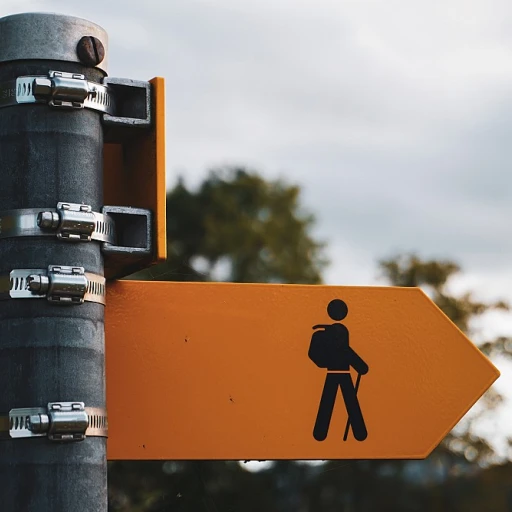
Understanding Background Checks
What Are Background Checks?
Background checks are a crucial part of the hiring process for many employers. These checks are designed to provide a comprehensive view of an individual's history, which can include their criminal record, driving record, and other personal details. For jobs that involve driving, understanding a candidate's driving history is particularly important. Employers want to ensure that potential hires have a clean record, free from serious traffic violations like reckless driving or multiple speeding tickets.
The Role of Driving Records
Driving records are a significant component of background checks, especially for positions that require a valid driver license. These records can reveal traffic violations, including speeding tickets, which might impact job prospects. Employers often look for patterns of behavior that could indicate a risk, such as repeated traffic tickets or a history of reckless driving. This information helps them assess whether a candidate is suitable for a role that involves driving.
Why Employers Conduct Background Checks
Employers conduct background checks to ensure the safety and reliability of their workforce. By examining an applicant's history, they can identify any potential red flags that might affect their performance or the company's reputation. This is particularly important in roles where driving is involved, as a poor driving record could lead to increased insurance costs or liability issues. For those concerned about how their driving history might affect their employment opportunities, exploring employment opportunities without background checks could be a viable option.
Traffic Violations and Their Impact
The Consequences of Traffic Offenses: What You Need to Know
Traffic violations, like reckless driving or a basic speeding ticket, have a certain impact on your driving record. It is crucial to note that these offenses can appear on various types of background checks, particularly those focusing on driving records. However, they usually don't carry the same weight as a criminal conviction unless it escalates to something more severe, like a DUI. Each violation is recorded in your driver license record, impacting insurance rates and sometimes employment if the job involves driving. However, not all violations show up on background checks in the same way. A ticket may just reflect a minor infraction on your record but doesn't necessarily count as a criminal background issue unless coupled with reckless or criminal intent. Consequently, your employment background might not be affected heavily unless a pattern of repeated violations is noticeable. Knowing the specifics of whether or not a traffic ticket appears in a background check is critical for understanding how misdemeanors impact employment opportunities. Employers may sift through your driving history carefully, particularly if the position requires frequent driving; thus, even minor traffic tickets could be considered by some companies when conducting a job background check. Therefore, understanding the weight of traffic violations show on your record can help in handling potential consequences effectively. In short, while a single speeding ticket may not show a significant change in your employment history or job prospects, consistently receiving such tickets does potentially fill your background checks with unwanted entries. Ensuring clean driving records should be a priority to maintain smooth sailing when applying job positions that involve any driving.Do Speeding Tickets Show Up?
Speeding Tickets and Their Presence on Background Checks
When it comes to background checks, many individuals wonder if speeding tickets will appear. The answer isn't always straightforward, as it depends on several factors, including the type of background check being conducted and the specific state laws governing traffic violations.
Generally, speeding tickets are considered minor traffic violations and are not classified as criminal offenses. As a result, they typically do not appear on a criminal background check. However, they are likely to show up on a driving record check, which is often part of the background check process for jobs that involve driving.
Employers who require a driving record check will likely see any speeding tickets, as these are part of a driver's history. This can impact job prospects, especially if the position involves driving or requires a clean driving record. It's important to note that while a single speeding ticket may not be a deal-breaker, multiple violations could raise concerns about a candidate's reliability and responsibility.
For those concerned about how speeding tickets might affect their employment opportunities, it's crucial to understand the specific requirements of the job they are applying for. Some employers may overlook minor traffic violations, while others may have stricter policies. Understanding these nuances can help individuals better navigate the job application process.
For more insights on how different types of violations can affect your job prospects, you might find this resource on navigating auto loans helpful.
State and Local Variations
Variations Across States and Local Jurisdictions
When it comes to background checks, the way speeding tickets and other traffic violations appear can vary significantly depending on state and local laws. Understanding these variations is crucial for anyone concerned about how their driving record might impact their job prospects or insurance rates.
Different states have different rules regarding what types of traffic violations show up on a background check. For instance, some states might include minor traffic tickets in a criminal background check, while others may not. This means that a speeding ticket could appear on your record in one state but not in another.
Local jurisdictions also play a role. In some areas, a traffic ticket might be considered a minor infraction and not included in employment background checks. In others, particularly where the violation involves reckless driving, it might be treated more seriously and thus appear on a background check.
Moreover, the type of job you are applying for can influence whether a speeding ticket will be a concern. Jobs that involve driving, such as delivery or transportation roles, are more likely to scrutinize your driving record closely. Employers in these sectors often conduct detailed checks to ensure that a potential hire's driving history does not pose a risk.
It's also worth noting that some states offer options to mitigate the impact of traffic tickets on your driving record. For example, attending a driving school might help remove points from your license, which can be beneficial when undergoing background checks for employment or insurance purposes.
In summary, the appearance of speeding tickets on background checks is not uniform across the board. It is influenced by a combination of state laws, local regulations, and the nature of the job you are applying for. Staying informed about these variations can help you better navigate the implications of traffic violations on your employment and insurance opportunities.
Implications for Employment and Insurance
Impact of Traffic Violations on Employment and Insurance
Employment prospects often hinge on one's driving record, especially for positions that involve driving or require a valid driver license. Even though speeding tickets are not as severe as other traffic violations, they can still play a role in your employment background check. Employers may conduct these checks to assess whether you pose a risk on the road. Repeated offenses, or involvement in more serious incidents like reckless driving, can adversely affect your job application, with some employers weighing each violation heavily. Insurance companies also take a keen interest in your driving and traffic history. Speeding tickets may lead to higher insurance premiums, as insurers view them as indicators of risk. More infractions can increase the perception of risk, leading to higher costs or even denial of coverage options. Consequently, policyholders should be aware of how tickets show up on their driving record and consider the long-term implications. In both employment and insurance scenarios, understanding the ways violations show on your background check can help foresee and address potential issues before they impact job prospects or financial expenses. While not all tickets show as prominently as a criminal background offense, transparency with employers about your history will likely serve you well in professional settings.Mitigating the Impact of Speeding Tickets
Strategies to Lessen the Effects of Speeding Tickets on Your Background Check
Receiving a speeding ticket can feel daunting, especially if you're worried about its appearance on your driving record and subsequent effect on background checks. Knowing that traffic violations, including speeding, can influence employment opportunities or insurance rates may bring concerns. However, there are ways to mitigate these potential impacts effectively.
One crucial step is to promptly address the ticket. If you wonder whether to dispute the violation, attending a court hearing provides the opportunity to explain your case. While not all disputes are successful, demonstrating active efforts to maintain a clean driving record can reflect positively on you.
Moreover, consider traffic school or defensive driving courses, which can often remove points from your driving record. This approach not only helps in keeping insurance premiums manageable but also shows future employers and insurers that you're proactive about road safety.
When applying for jobs, especially those involving driving, transparency is key. Acknowledging past traffic violations in discussions with potential employers can demonstrate honesty. Many employers appreciate forthrightness and may consider the isolated nature of the incident against the backdrop of your overall driving history.
Additionally, routinely check your driving record. Being informed of what appears on it allows you to address any discrepancies and be prepared for any questions that could arise during a background check or job interview.
Ultimately, while speeding tickets may show up on background checks, their impact can often be managed through proactive measures. By understanding the implications and preparing accordingly, you can alleviate some of the stress associated with traffic violations and preserve your job prospects.












